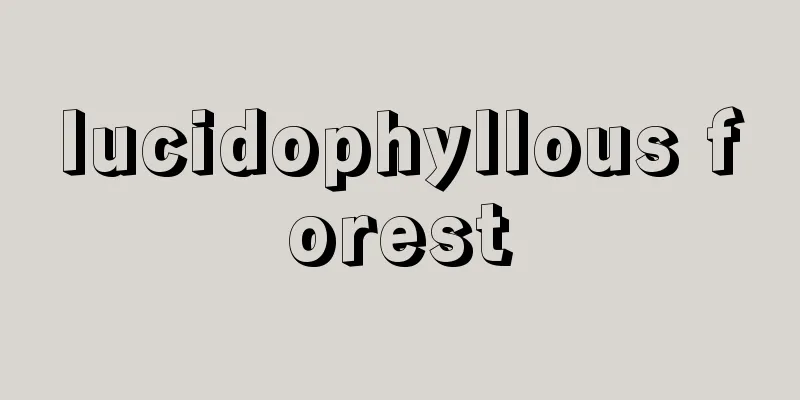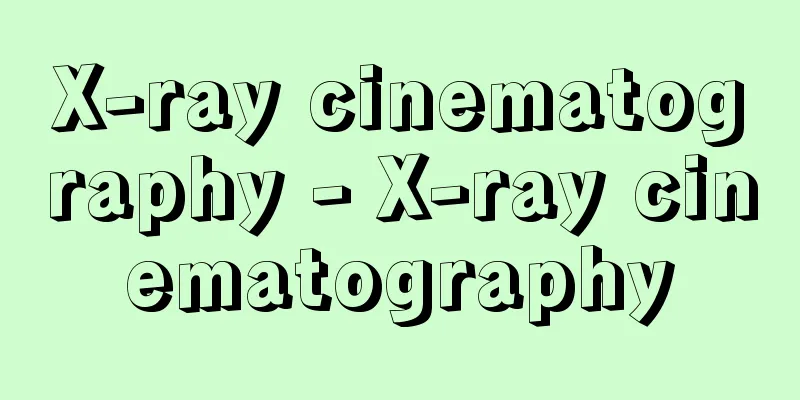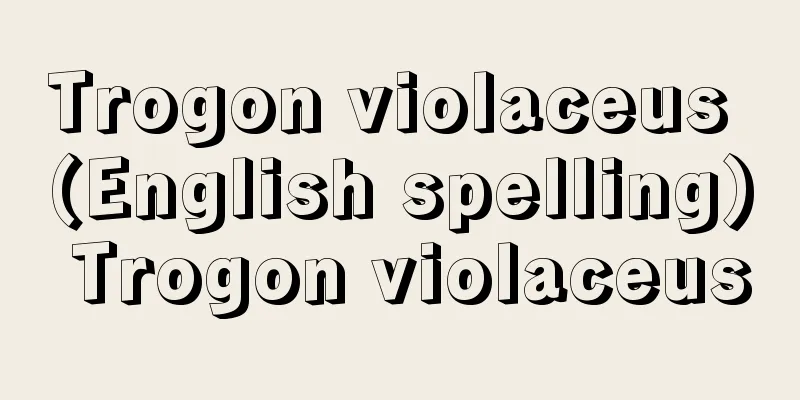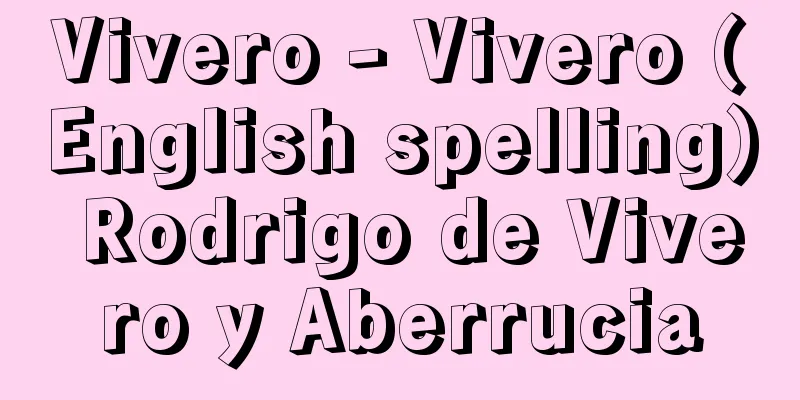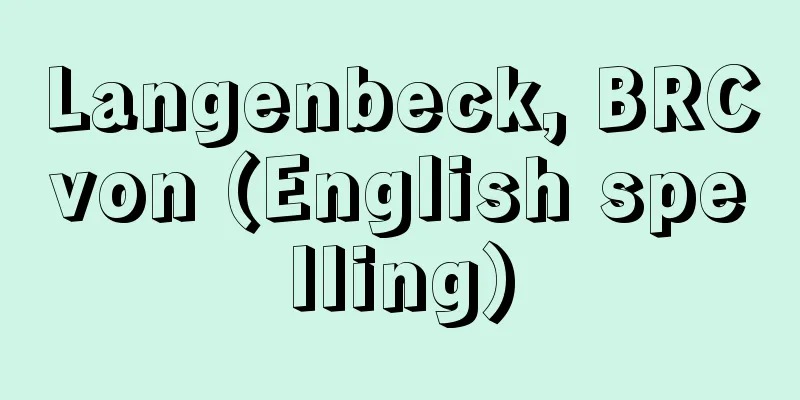Summary trial procedure - Summary trial procedure
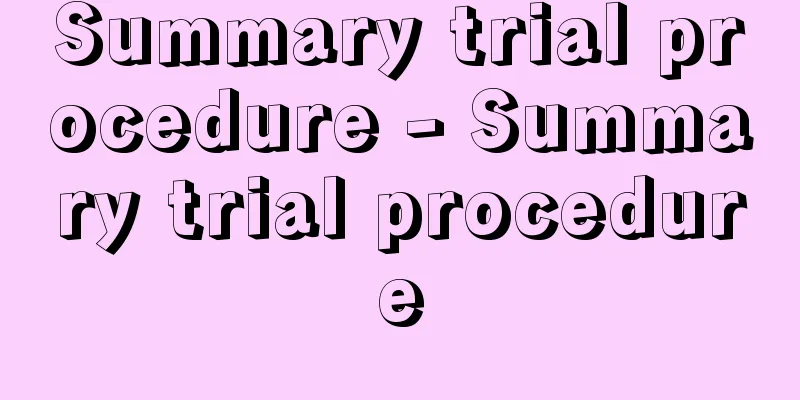
|
A public trial procedure established in 1953 (Showa 28) from the perspective of promoting speedy trials or hearings for relatively minor cases where the parties are not in dispute. It was created when the Code of Criminal Procedure was partially revised, based on the alignment (procedures for admitting or denying indictment) in American law. Compared to the normal procedure, the restrictions on the admissibility of hearsay evidence (statements that have not been given the opportunity for cross-examination of the defendant) have been relaxed (Criminal Procedure Law, Article 320, Paragraph 2), and the method of evidence examination has been simplified, allowing evidence examination to be conducted in a manner deemed appropriate at the trial date (Criminal Procedure Law, Article 307, Paragraph 2). In other words, if the defendant states at the opening proceedings that he is guilty of the charges listed in the indictment, the court may, after hearing the opinions of the prosecutor, the defendant, and the defense counsel, decide to use summary trial procedures to try only those charges for which he has stated that he is guilty. Furthermore, if the defendant does not object, all hearsay evidence such as statements of statements may be used as evidence. However, the principle regarding the voluntariness of confessions (Criminal Procedure Law, Article 319) is not relaxed. In addition, this does not apply to cases that are punishable by death penalty or life imprisonment or imprisonment for a term of one year or more (Criminal Procedure Law, Articles 291, Paragraphs 2 and 291, Paragraph 3), so summary trial procedures do not apply. [Ichiro Uchida and Morikazu Taguchi] [References] | | | |Source: Shogakukan Encyclopedia Nipponica About Encyclopedia Nipponica Information | Legend |
|
当事者に争いのない比較的軽微な事件について、迅速な裁判ないし審理の促進という観点から、1953年(昭和28)に設けられた公判手続。アメリカ法のアレインメント(起訴認否手続)を参考にして、刑事訴訟法一部改正に際して創設された。 通常の手続に対して、伝聞証拠(被告人の反対尋問の機会にさらされていない供述)の証拠能力の制限を緩和し(刑事訴訟法320条2項)、証拠調べの方式を簡易化して、証拠調べは公判期日において適当と認める方法で行うことができるとしている(同法307条の2)。すなわち、被告人が冒頭手続に際し、起訴状に記載された訴因について有罪である旨を陳述したときは、裁判所は、検察官、被告人および弁護人の意見を聞き、有罪である旨の陳述のあった訴因に限り、簡易公判手続によって審判する旨の決定をなしうる。さらに、被告人から異議がなければ、供述調書などの伝聞証拠もすべて証拠にできる。ただし、自白の任意性などに関する原則(同法319条)は緩和されない。また、死刑または無期もしくは短期1年以上の懲役もしくは禁錮にあたる事件についてはこの限りではない(同法291条の2、291条の3)ので、簡易公判手続は適用されない。 [内田一郎・田口守一] [参照項目] | | | |出典 小学館 日本大百科全書(ニッポニカ)日本大百科全書(ニッポニカ)について 情報 | 凡例 |
<<: Summary court - kan'isaibansho
Recommend
Isabel
...The Republican Party was born in 1870, and in ...
Iwamoto Sashichi
...A series of books from the end of the Edo peri...
Anomie (English spelling) anomie French
A state of chaos caused by the instability, relax...
Kitayama-in Temple
Year of death: November 11, 1419 (November 28, 141...
Disarmament Conference
…Saito Makoto and Ishii Kikujiro were appointed p...
Gregorius X (English spelling)
…However, apart from deposing Holy Roman Emperor ...
Loberia cardinalis (English spelling) Loberiacardinalis
…[Eiichi Asayama] [Aya Nitta]. … *Some of the ter...
Epimedium cremeum (English spelling)
…[Nitta Aya]. . . *Some of the terminology that m...
Europa - Europa (English spelling) Europē
A woman in Greek mythology. Daughter of King Agea...
Arnold Johannes Wilhelm Sommerfeld
German theoretical physicist. Born in Königsberg ...
Samurai bond
Publicly offered bonds denominated in yen issued b...
Iwatogarashi - Iwatogarashi
...From the second half of the 18th century onwar...
"Enryaku Change of Era Ceremony"
...There is no clear evidence as to when the offi...
Avalon (English spelling)
A town on Santa Catalina Island in the Channel Isl...
Radioactive prospecting
Also known as radioactive exploration. It is a met...


